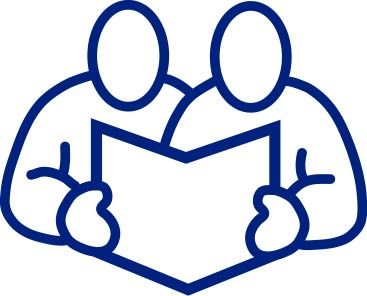Last updated: July 2, 2013
 Literacy Challenges in the Third World
Literacy Challenges in the Third World
I’m moved to write about this topic because there are some potentially positive changes afoot.
There has been much speculation and lots of quick judgments on the Negroponte laptop project. I’ve found all of the articles and blogs I’ve seen to be so devoid of factual matter, while so packed with unsubstantiated opinion, that I’ve found it impossible to form any kind of judgment of my own on the topic.
Obviously addressing the huge problem of literacy in the third-world is essential to a bright future for publishing. Will this be part of the solution?
An excellent article in IEEE Spectrum asks “Nicholas Negroponte’s $100 laptop is a sweet piece of engineering. But can it really change the world?”
It’s that rara avis — an article full of technical, social and political insight, and balanced in presenting its ideas and information — fascinating and provocative.
Literacy Challenges in the “First World”
Many people think of literacy as exclusively or mainly a problem of poor and developing countries. According to the CIA Factbook there is really no literacy problem in the United States:
Definition: age 15 and over can read and write
Total population: 99%
Male: 99%
Female: 99% (2003 est.)
It offers the same percentages for Canada (merci, CIA).
Mexico is a little behind the 8-ball, but not far:
Total population: 92.2%
Male: 94%
Female: 90.5% (2003 est.)
I tried to find a country where the CIA would judge there to be a literacy problem. It is extremely generous with most nations, including most of Africa. Finally I hit Haiti, one of the world’s tragic basket cases. The CIA’s numbers are:
Total population: 52.9%
Male: 54.8%
Female: 51.2% (2003 est.)
The CIA is clearly taking a fairly basic view of what constitutes “literacy.” As with many organizations, the definition appears to stop at “literacy is the ability to read and write.” I believe a more robust definition better represents what literacy really means, for example “being able to speak, listen, read, write, and view; thinking is an integral part of all these processes.”
A report from the Pew Research Center called “Public Knowledge Of Current Affairs Little Changed by News and Information Revolutions” (PDF) offers more of the now familiar horror stories: only 69% could name the vice president of the United States; 66% could name their current state governor; and 36% could name the president of Russia. And we should define these people as literate?
Perhaps 99% actually can read, but clearly a much smaller percentage do so, and perhaps an even smaller percentage absorb what it is they are reading.
There is a great deal of published information on literacy in the United States, most of it illiterate, out-of-date and full of meaningless platitudes.
A 2003 report from the National Assessment of Adult Literacy defines “Prose Literacy Levels”:
- Below Basic:
No more than the most simple and concrete literacy skills - Basic:
Can perform simple and everyday literacy activities - Intermediate:
Can perform moderately challenging literacy activities - Proficient:
Can perform complex and challenging literacy activities
The numbers aren’t pretty:

On the other hand, I often find myself wondering: who cares if the average American or Canadian knows the name of the president of Russia? What possible difference could this make to their day-to-day life? They aren’t going to meet him.
We have an ingrained cultural bias that dictates that citizens should be informed about politics and current affairs. It’s essential to effective democracy (or so the argument goes). The cynic can just as easily argue that raising $50 million for a presidential campaign is more key to the so called-democratic outcome that knowing a politician’s name. In most North American elections less than 50% of eligible voters bother to show up. And I should lament that they haven’t heard of Mr. Putin?
The issue impacting the future of publishing is what activities and data underlie this analysis? The problem clearly extends far beyond reading, literacy and the Internet. It remains to be seen what exactly we should make of this.
References
1. LINCS
Literacy Information and Communication System (LINCS), is a “national dissemination, resource gathering, and professional development system providing information on a wide variety of literacy relevant topics, issues, and resources.”